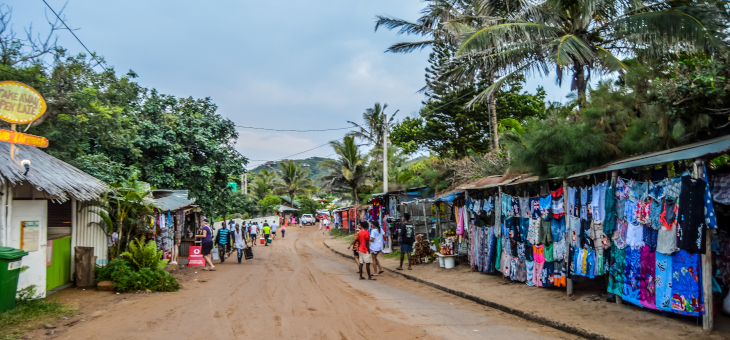Mozambique: Enormous investment expectations are weighed down by escalating violent conflict

Event
On 24 March, Islamist militants launched an attack on Palma city in Cabo Delgado, home to huge natural gas developments. Thousands fled the violence and dozens were killed, including a number of foreign employees working on the Total Liquefied Natural Gas (LNG) construction site. Over the past three years, militant Islamist activity in the northern Cabo Delgado province has been spreading, tapping into long-standing local grievances over (economic) marginalisation. Only recently did reports of atrocities against civilians raise more international awareness about the conflict.
For a few months, security forces and South African mercenaries under private contracts have been fighting insurgents in an attempt to quell the violence and secure the multibillion-dollar LNG investments. Moreover, US and Portuguese special forces are to be deployed to train Mozambican soldiers and coordinate a military response. Despite those efforts, the French energy group Total decided to suspend the USD 20 billion LNG development project on the nearby Afungi peninsula, following the recent attack on Palma. Although it concerns a landmark project for both Mozambique and the wider region, the worsening security situation and the lack of government control finally drove Total to temporarily abandon the project and evacuate hundreds of workers. Analysts expect the closure to last more than a year.
Impact
Despite the pandemic and the turbulence on oil and gas markets, by mid-2020 Total had managed to secure financing to transform Mozambique into a world-leading LNG producer. Given the amount of the financing, this project led to the highest private debt ever incurred by an African country. The USD 20 billion onshore gas project (140% of Mozambique’s entire GDP) is moreover considered the biggest foreign direct investment in Africa. Obviously, this seriously exposes the low-income country. Huge investment-related imports pulled the current account into a deep deficit worth more than 60% of GDP (or 200% of export revenues) in 2020. Although capital inflows to fund these deficits are huge, sporadic financing gaps emerge on the balance of payments. Given Mozambique’s reliance on foreign investors to cover these huge deficits and debts, the country is extremely exposed to drops in investor confidence, the latter being negatively affected by the Covid-19 pandemic, volatile LNG prices and the spreading insecurity which recently led to Total’s (temporary) pull-out.
Ever since a large debt scandal surfaced in 2015, Mozambique has been in a financial crisis amid unsustainable public debt levels and accumulated public payment arrears to external creditors. Following the global outbreak of Covid-19, Mozambique’s LNG windfall has been forecast to be reaped later. The economy contracted by 0.5% in 2020 and a strong recovery is not expected soon, as GDP growth is only forecast to reach 2.1% by the end of this year and 4.7% in 2022. More recently, the insurgency in Cabo Delgado has increased the risk for violent conflict and has been threatening capital and investment inflows, putting both the country’s liquidity and solvency position at risk. As a result of the great vulnerabilities Mozambique has shown for some time, Credendo classifies the country in the highest political risk category (7/7) for both the short term and the medium to long term.
Analyst: Louise Van Cauwenbergh – l.vancauwenbergh@credendo.com